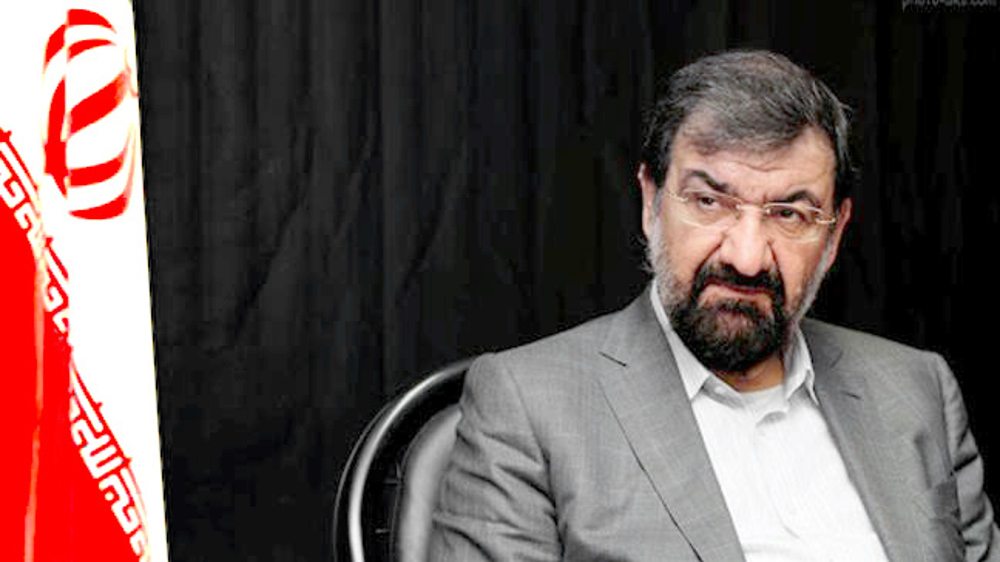Iran should ask compensation for damage caused by US sanctions: Senior official
Iran should ask the United States for compensation in return for the damage inflicted on Tehran through the unilateral imposition of tough economic sanctions by the administration of former US President Donald Trump, says a senior Iranian official.
“In addition to implementing the law [passed by the Iranian parliament] for taking strategic steps to thwart sanctions, we must certainly ask the United States for the compensation of the damage done to our country,” Mohsen Rezaei, the secretary of Iran’s State Expediency Council, said on Monday.
On December 1, 2020, Iranian lawmakers overwhelmingly voted in favor of the 'Strategic Action Plan to Lift Sanctions and Safeguard Interests of Iranian People,' which intends to counteract sanctions imposed on Iran after the US pulled out of the nuclear deal of 2015. The bill became law after being endorsed by Iran’s Guardian Council.
According to the new law, the Iranian administration is required to suspend more commitments under the nuclear deal, officially known as the Joint Comprehensive Plan of Action (JCPOA), if the US sanctions are not eased by February 21.
The law tasked the Atomic Energy Organization of Iran (AEOI) with producing and restoring at least 120 kilograms of enriched uranium with a 20-percent purity level every year and also enrichment beyond 20 percent if the country’s peaceful nuclear activities demanded.
In response to a question about the termination of Iran’s deadline for the Americans to lift sanctions, Rezaei said, “We, in the Islamic Republic and its foreign policy [apparatus], have always tried to act on the basis of rights, justice and observance of international norms, and we have never failed to fulfill our commitments under obligations.”
The secretary of Iran’s State Expediency Council underlined that Tehran stands firm in the face of the other side's violations of the deal and there will not be any changes whatsoever in its stance.
“If the enemies and other countries that claim to have constructive relations with us do not come to their senses and do not meet their obligations, they should not expect that the Islamic Republic to back down,” Rezaei noted.
The senior Iranian official reiterated that, “We had to stop the West from breaking the pact at some point, and that’s where the law was passed by parliament and must be implemented in order for them to fulfill their obligations.”
Rezaei, however, said it is Iran that must verify the US’s fulfillment of its commitments due to the lack of mutual trust.
"Trump and his administration inflicted damage on our country by breaking the deal and imposing sanctions, and they must compensate."
Earlier on Monday, Iranian Foreign Ministry Spokesman Saeed Khatibzadeh said Tehran would end its voluntary implementation of the Additional Protocol to the the Non-Proliferation Treaty (NPT) should the other parties to the JCPOA fail to honor their commitments by the deadline of February 21.
The JCPOA was unilaterally ditched by Trump in May 2018, in pursuit of what he called the “maximum pressure” policy against the Islamic Republic through unilateral sanctions. Iran says the policy is an act of “economic terrorism."
Washington's withdrawal was met with worldwide criticism, and was followed, a year later, by Iran’s gradual reduction of its nuclear commitments.
Tehran has repeatedly proclaimed that it will return to its nuclear obligations as soon as its interests under the JCPOA are met.
VIDEO | Carol Singers for Palestine on London’s Parliament Square
American warplane downed after Yemeni attacks 'baffled' US air defense: Ansarullah
VIDEO | Yemenis praise the military for its successful operations against Israel
VIDEO | Israel continues to bomb Gaza homes
VIDEO | An insider's view of the country: Meybod City in Yazd
‘All wars have rules. All of those rules have been broken’ by Israel
VIDEO | Report flags India’s violation of rights of Rohingya detainees
Turkey's foreign minister meets Syria's de facto leader in Damascus


















 This makes it easy to access the Press TV website
This makes it easy to access the Press TV website